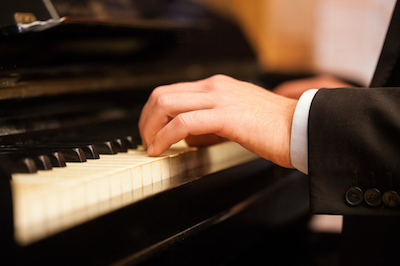Remember when your parents pushed you to play the piano? They encouraged you to keep practicing, to spend time every day trying to get a little better. They said it built character. That said it would help you become a better person.
Turns out they were on to something.
According to a National Institutes of Health (NIH) Magnetic Resonance Imaging (MRI) Study of Normal Brain Development, musical training doesn’t stop at improving your musical ability, it also provides tremendous benefits to a child’s emotional and behavioral maturation as well.
In the study, the analyzed brain scans of children 6 to 18 years old and found that the more a child trained on an instrument, the more it accelerated cortical organization in attention skill, anxiety management, and emotional control. As cortical thickness increases, memory function, attentional control, and organizational skills improve with it.
Because of that, musical training is thought to potentially be a powerful treatment for many different cognitive disorders, including things like ADHD.
And it doesn’t take a lot of formal training. Even small doses of musical training, from listening to different types of music, to playing basic songs can do the trick.
These results continue to challenge the current direction of education within the school system.
In our current American education system, three out of four high school students rarely or never have received lessons in music or the arts. Without dedicating adequate time and resources to music training, we are potentially robbing kids of not only the joy of bringing music into their lives, but the opportunity for becoming more successful in their pursuit of education, and the chance of having a more well-rounded life.
Is it time we rethink the power of music in our lives?

